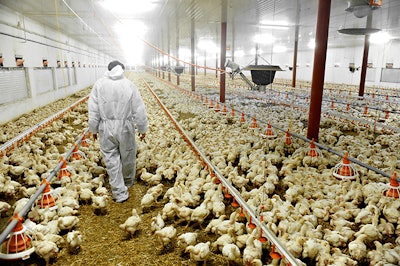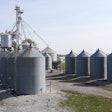
More than half of all workers involved in avian influenza depopulation events experience behavioral health issues during and up to six months after the crisis, making mental health support as critical as biosecurity protocols.
Physical symptoms include fatigue, headaches, changes in appetite and sleep disturbances. Cognitive effects range from difficulty remembering names and events to trouble concentrating. Emotional symptoms include sadness, feelings of isolation, guilt and loss of confidence.
"The psychological impact of a disaster associated with animal suffering and loss of animal life, combined with those feelings of a limited ability to do anything about it, may manifest itself so differently," Linda Emanuel, community health liaison, AgriSafe Network, explained during a November 18 webinar, “Tackling the Mental Stress of Avian Influenza in Agriculture.”
HPAI stress doesn't stop at the farm gate. Family members, including young children who sense household tension, experience indirect effects. Veterinarians who regularly respond to outbreaks need monitoring for emotional burnout and compassion fatigue.
Rural communities experience secondary trauma as news spreads. Neighbors with their own flocks worry about disease spread. Changes in environment — the silence of empty barns, altered routines, visible disposal efforts — serve as constant reminders of the event.
Understanding the Care-Killing Paradox
At the core of depopulation trauma is what experts call the "care-killing paradox," the emotional conflict experienced when caretakers must end the lives of animals they're committed to protecting. While this concept originated in veterinary medicine, it equally affects producers and farm workers.
"Those dual roles for caregivers all the way down to farm workers — they may not only be tasked with caring for these animals, but now being tasked with ending an animal's life. And this can feel very contradictory to their purpose for being there in the first place," said Tara Haskins, AgriSafe's Total Farmer Health Director.
This moral distress can lead to perpetration-induced traumatic stress (PITS), distinct from traditional PTSD. First identified in combat veterans who participated in lethal violence, PITS has since been recognized in workers who must euthanize animals — healthy or sick.
Building long-term resilience
The American Veterinary Medical Association (AVMA) emphasizes that stress counseling is most effective when incorporated into regular disaster preparedness, not implemented only during crises.
"Preparation helps us start having these conversations, whether internally or with our farm workers or our community," Emanual noted. While preparing for worst-case scenarios feels uncomfortable, having frameworks in place reduces chaos when outbreaks occur.
Additional protective strategies include peer support programs, where experienced workers mentor those facing their first depopulation event; regular team debriefings that normalize discussing difficult emotions and mindfulness practices that help workers process experiences in real-time rather than suppressing reactions until they become overwhelming.
View our continuing coverage of the global avian influenza situation.
To learn more about HPAI cases in commercial poultry flocks in the United States, Mexico and Canada, see an interactive map on WATTPoultry.com.
















